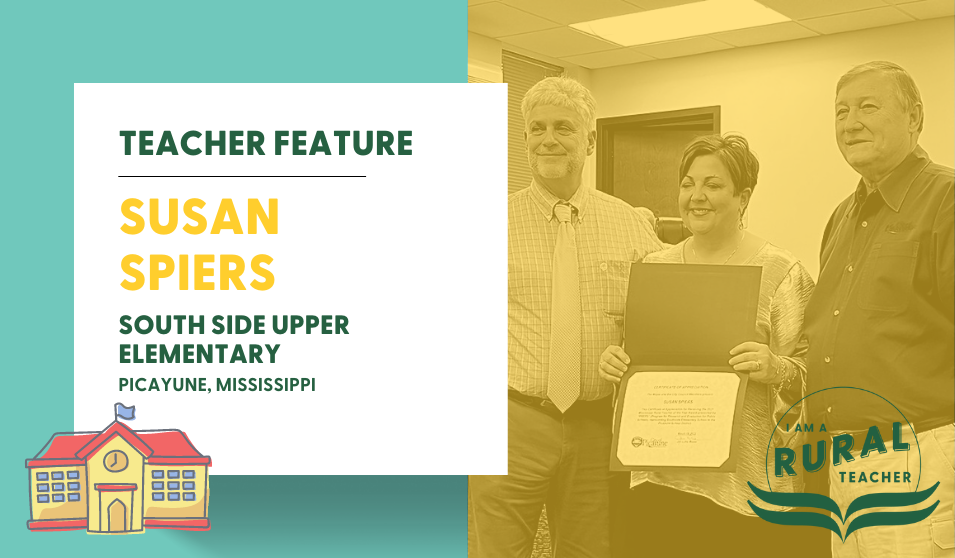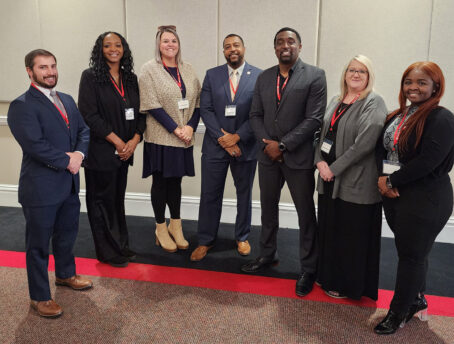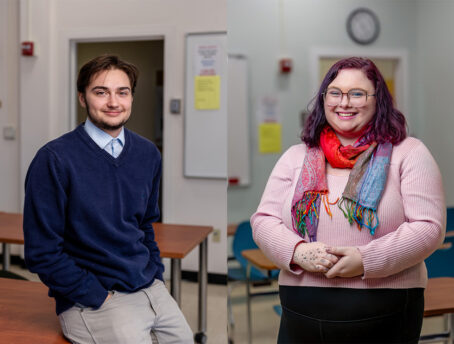Thank you to Patti Permenter at PREPS in Mississippi for connecting us with their Rural Teacher of the Year award recipients. In addition to being an affiliate state of the National Rural Education Association, Mississippi is included in our Black Belt Regional Hub headed up by the University of West Alabama.
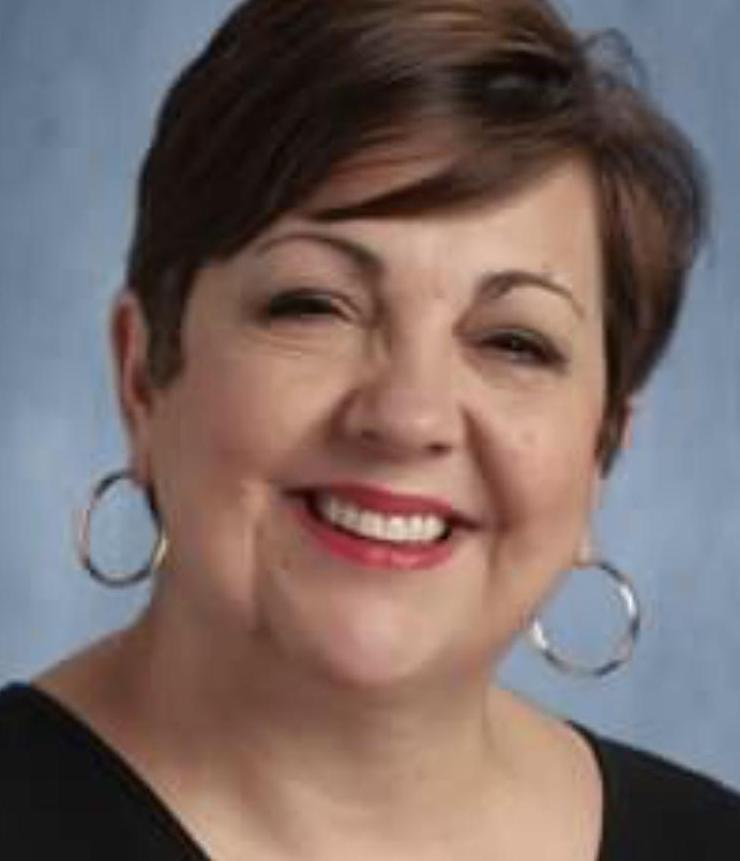
A keen focus on teachers occupies a full third of Rural Schools Collaborative’s mission not simply because we believe our educators deserve more funding and resources, which they certainly do, but also because we recognize the unique leadership role rural teachers play in their communities. If we believe that schools are the hubs that unite places and drive local prosperity, then rural teachers are the energizing fuel that catalyzes a school’s ability to act. Yet for all our emphasis on teacher leadership, it is worth taking a step back to unpack the term and detail precisely what that role looks like in context. Susan Spiers, a 39-year veteran teacher of upper elementary gifted education from Picayune, Mississippi, exemplifies visionary teacher leadership. In telling her story, Susan expresses this leadership in three distinct ways that typify why teachers are essential for a sustainable and thriving rural future: by acting as conduits of their place, by instructing and inspiring the next generation, and by providing vital services.
A Critical Connection to Lived Context
It so readily goes without saying, at risk of being overlooked, that educators do not teach in a vacuum. As much as a teacher’s work in the classroom is influenced by their time in college and the professional world, it is also a product of the context in which a teacher lives. Each place has unique histories, ecosystems, challenges, and opportunities, and teachers have the power to act as a conduit of that context to engage, inspire, and empower their students.
For Susan Spiers, her context is the city she’s lived in since moving there in the 7th grade: “My city is Picayune, Mississippi. We have about 11,000 residents here.” Since coming to Picayune as a child, Susan’s grown to “love the small town atmosphere” because “we know all the students' names and we know everybody. I really hate to go to Walmart because when I go I see everyone. My husband's like, ‘I am not going to Walmart with you because you know everybody there,’ but when you've been teaching in the same school district for 39 years, you know the whole community. That’s good in a way–except when you go to Walmart.”
Susan has spent those years teaching at South Side Upper Elementary, a 3rd through 6th grade school of about 300 students. She explains further that her school is “in a very low income neighborhood. We are adjacent to public housing and the majority of our students, around 90%, qualify for free and reduced lunch.”
Compounded with her own embeddedness in the community and the building’s present context is the history of Susan’s school as well. South Side Upper Elementary served only Black students prior to integration during the Civil Rights era. “It was called Carver High School,” Susan explains, “but it was actually 1st through 12th grade. They went undefeated in football for I can't even remember how many consecutive years, but they were amazing. My dad used to come here to this school just to watch the players practice because they were that amazing.” The legacy of Carver High School is as central to the community’s identity as it is for Susan and her memories. She tells how Picayune has “big memorial plaques about Carver High School and even a small museum in town dedicated to the school. A lot of our current grandparents and great grandparents of our students attended school here when it was Carver High.”
Susan is a community leader in that her knowledge of Picayune’s past, and her rootedness in the community, are key for her ability to authentically connect with her students in the classroom. Students who see their lived experiences, home ecosystems, and local understandings acknowledged and reflected in the classroom are more apt to be engaged.
In the same way, Susan seeks to expose students to places and experiences outside of their town as well. “I think the biggest challenge is that our children just don't have exposure to the world outside of their neighborhoods,” Susan laments. “I've taken students to field trips in New Orleans, which is only about an hour away, and when we cross Lake Pontchartrain they think it's an ocean almost every single time! I have to say, ‘No this is actually a lake,’ but they've never crossed the state line, and that's just unbelievable to me.”
Cultivating the Next Generation
A more traditional understanding of teacher leadership rests in their professional duties to instruct and train the next generation of active citizens. In particular, those educators who masterfully weave multiple disciplines, required content, and student interests together are venerated for their tangible impact on students’ lives, and by extension, that of the community. Susan is one such teacher, and her favorite unit of the year, called Peace, Propaganda, and Persuasion, underscores why:
“I call it Peace, Propaganda, and Persuasion, but it's basically about peace, and we study Mahatma Gandhi, Martin Luther King Jr., and we just finished reading the story of Malala. I teach intellectually gifted students, and this is a fifth grade unit, so I’m trying to inspire them to grow up to be peaceful, problem-solving, and peace-keeping people. I think it is as important as teaching them math and reading because they're going to be our leaders in the future…and we really get into some deep analytical lessons about what makes a person a peacemaker, and what qualities do you have in common with Malala, what do you have in common with Martin Luther King Jr., what would Mahatma Gandhi say in this situation?”
Beyond hypotheticals, Susan shares that her students are quick to apply the lessons of the Peace unit to issues they see out in the world:
“They've gotten so interested in what's going on with Russia and Ukraine right now and we've compared that to our little unit on World War II…We do Socratic Seminar, where you just give them a topic and let the kids do the talking, and they're really involved in the war in Ukraine because of what we've learned.”
Closer to home, Susan also details how her lessons are inspiring students to create and lead innovative projects for the whole school community:
“One lesson I did last week was comparing Malala's speech to the United Nations to the Sarah Bareilles song ‘Brave.’ I don't know if y'all have ever listened to the lyrics of the song, but it's really a great song about speaking up when you see injustice. So, the students came up with the idea to make their own video about the school to the song…They're so excited about making the video and inspiring other students to speak up when they see something that's unjust.”
The students are especially excited about including classmates who might not have always been represented; Susan continues:
“My school has the only self-contained special ed class in our town, so the students have grown up with these same children and they have such a great relationship and are very protective of our special ed students. So their first idea for the video was to include our special ed students. We have one child that was in an accident and he is paralyzed from the waist down, so they were all saying, ‘We got to get Jeremiah in the video!’ That just touched my heart that their first idea for the video was to include less fortunate or challenged students.”
Susan’s transformative instruction is not limited to official class time either. As we shared in an earlier story, Susan was nominated as Mississippi’s rural teacher of the year for a summer camp she created to engage and uplift at-risk boys in her school, called the Forge Project. Susan and a team of coworkers run the one-week camp each summer for boys without fathers, teaching them essential social and life skills. For her tireless work with over 50 boys through the Forge Project, Susan was honored as Mississippi’s rural teacher of the year in 2022.
These individual and community impact projects are something Susan enjoys doing, and tries to lead her students to do as well. “We do a lot of community projects,” she says. “Stepping outside of everyday duties and doing things, I have gotten students to participate in a citywide cleanup, and I get out there and pick up trash with them–to me that's what leadership is: letting them see you do the grunt work and not just telling them what to do. Don't ask someone to do what you wouldn't do yourself, and they see you out there, if you can pick up garbage they can pick up garbage.”
Though instruction and training is the duty of our rural teachers, Susan’s story reveals how educators can also rise to become community leaders through innovative class content, real life skills application, and modeling behaviors and achievements.
Wearing Many Hats
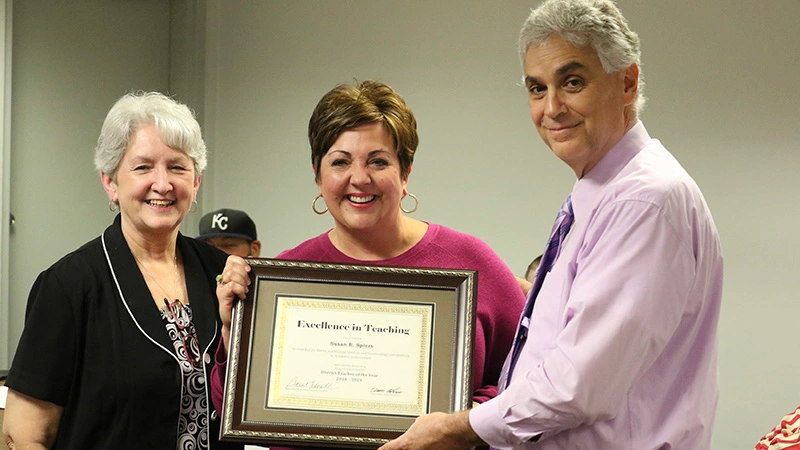
Using one’s place context to inform and drive classroom content is key to teacher leadership, but another, critical dimension to a rural educator’s priceless contribution to their community comes in the work which extends beyond their professional titles and training. Many rural teachers will say that to work in rural means to “wear many hats.” In addition to classroom instruction, many teachers must blur the limits of their profession to become, in some cases, the sole source of essential social services for students, families, and even coworkers. Susan emphasizes that this task is far from easy and requires a tenacious heart with a clear sense of purpose; but it’s also often the most rewarding aspect of a job, where teachers witness the tangible impacts of their service. She shares a story about one family in particular:
“We have some students who live by a river, and sometimes they have to take a boat to a landing where the bus can actually pick them up because the bus can't get down their road. This happens a lot, and that's stressful for a child: to have to get in a boat and get your book bag and everything.”
For Susan, teacher leadership in these situations entails understanding the bitter troubles her students endure, and working to provide as sustaining and encouraging of an environment for them as possible:
“Kids are going to come to school with a lot of baggage, be prepared for that and be a good listener for them–and sometimes their parents–to make the safest environment that you can. I have a student right now whose mother told me last week that they lost their house to foreclosure, and she's one of my former students too. I'm just heartbroken and he comes to school with a smile on his face every day, but I know that has to be hard on him and his brothers. You just have to keep that in mind and not jump on them if they don't have their uniform just right, or if they're tired or grouchy. You don't know what that child went through that morning, on the way to school, or last night.”
Providing socio-emotional support to her students was not necessarily part of the job description, but it is a need that Susan feels compelled to fill out of a sense of dedication to her students and community: “I mean this may be the only safe place they ever go to, so we need to make sure they do feel safe at school; and not just physically safe but emotionally safe also.”
In Support of Rural Teacher Leaders
Visionary teacher leadership can mean many things, but Susan Spiers’s experiences offer one glimpse of how educators play an irreplaceable role in our rural hometowns. Not only are they responsible for educating and enabling future citizens, but rural teachers are also distinguished by their abilities to act as conduits of their place and as providers of essential social services. All three of these aspects empower teachers to craft meaningful curriculum, spark impactful projects, and unlock students’ capacity to act and achieve. While this is a mighty ask of our teachers, and one good reason why much needs to be done to support them above and beyond current levels and inspire new generations of teachers to join the profession, Susan feels the work to be well worth it to change the life of even one student:
“A few years ago, when I was selected as the district teacher of the year, a former student wrote a letter on my behalf. She is currently a professor in New Orleans, but she said that when she was in fourth grade doing a creative writing assignment that I pulled her aside and said, ‘Kayla, you're a writer.’ She said that stuck with her. I don't want to get teary-eyed, but that stuck with her more than anything anybody has ever said. To have her and other kids come back that you didn't realize you had an impact on until they're adults is just overwhelming and a memory that forever stands out in my mind.”
We are grateful to Susan for sharing her story with us! If you would like to share 30 minutes of your time for an interview, please reach out to us at info@ruralschoolscollaborative.org. The I Am A Rural Teacher campaign is a collaborative effort with the National Rural Education Association and made possible through a grant from the Bill & Melinda Gates Foundation.

